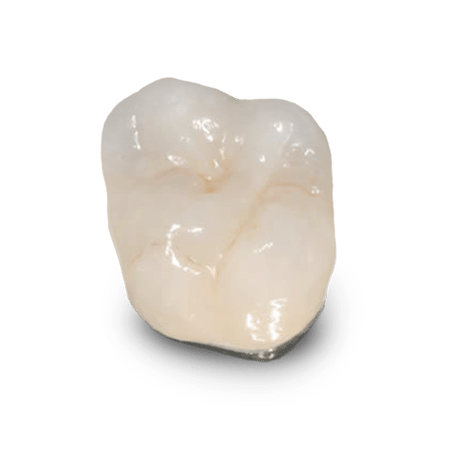
PFM
PFM is the timeless standard for dental restorations. They are crafted by carefully fusing a layer of porcelain to an underlying layer of high-quality metal alloy. The metal provides stability and strength, which makes it a strong contender against crowns made from alternative materials. The porcelain provides the restored tooth with a lifelike appearance. These crowns are still a popular option due to their high rate of clinical success and their biocompatibility that helps ensure continued periodontal health. PFMs are also gentle on opposing dentition. The use of CAD/CAM technology allows our clinicians to fabricate this traditional solution with extreme precision.
Features:
- Gentle on opposing dentiton
- Biocompatible
- Careful bonding of porcelain eliminates discoloration
- CAD/CAM fabrication


Indications
Changed color of anterior teeth, Incorrect shape of tooth or position in dental arch, Enamel defects such as enamel hypoplasia, attrition of teeth as a consequence of trauma, wide interproximal spaces like diastema.
Contraindications
Bruxism and parafunction, Pathology of bite, more than 50% of enamel affected by pathology.
Preparation
The ideal preparation for PFMs is a chamfer margin preparation. If a porcelain labial margin is prescribed, then a shoulder margin preparation is required.
Cementation
- Panavia 21 – tin plated
- Glass ionomer cement (GC Fuji, GC America)
- Zinc Phosphate Polycarboxylate
- Resin Ionomer cement (RelyX, 3M ESPE)
Tech Notes
Codes
- D2750 Crown Porcelain fused to high noble
- D2751 Crown Porcelain fused to nonprecious
- D2752 Crown Porcelain fused to semiprecious
- D6750 Crown Porcelain fused to high noble (bridge units)
- D6751 Crown Porcelain fused to nonprecious (bridge units)
- D6752 Crown Porcelain fused to semiprecious (bridge units)



